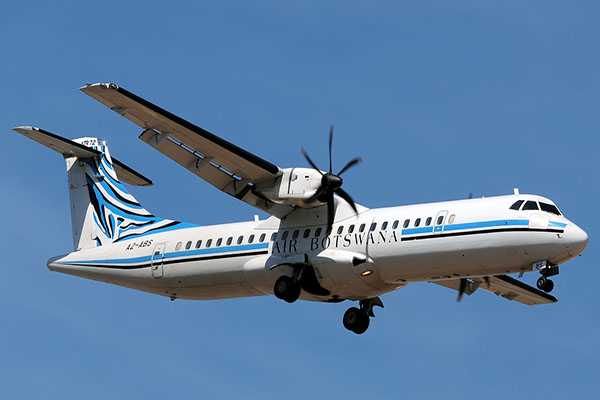Confirmed: Wilderness Safari to own Air Botswana
President Ian Khama has finally issued a directive instructing that the struggling and cash-strapped national airliner, Air Botswana be turned into a company with private shareholding. This came to light this week from documents shared at the ongoing Public Accounts Committee (PAC) and passed to BG News. The Presidential Directive CAB 12(A)/2017 of 3 May 2017 further instructs the privatised Air Botswana to “partner with Wilderness Holdings who will have a majority shareholding” subject to negotiations and applicable statutory requirements.
Permanent Secretary in the Ministry of Transport and Communications, Kabelo Ebineng told the ongoing PAC this week that the sale of Air Botswana is expected to be completed in eight months’ time because they are still negotiating with a company that will take over the struggling airline.
Air Botswana is believed to have successfully completed its first phase of restructuring in December 2016 culminating in over 200 jobs shed in a retrenchment exercise that was concluded in March 2017.
This was then followed by an expression of interest (EOI) to turn Air Botswana into a company, which was floated and closed in 28th February 2017. A total of 17 companies are believed to have responded to the advertisement to acquire the struggling airline and were evaluated in March 2017. According to a report seen by this publication, “Botswana Government is considering various workable ways of weaning itself of the airline’s financial adversity, while maintaining the entity as a national flag carrier.”
This explains the Presidential Directive instructing that Air Botswana be turned into a company with private shareholding, and to partner with Wilderness Holdings, which owns Wilderness Safaris and has interests in Okavango Delta. According to Wilderness Holdings’ financial results, President Ian Khama has beneficial interests in Linyati Investments, which is a subsidiary of Wilderness Safaris.
During the last Parliament sitting, Minister of Transport and Communications, Kitso Mokaila was adamant that with the current financial challenges facing Government, the Executive has decided that Government “will not reinvest in Air Botswana” but rather look for strategic partners. He said at the time, “We are currently going through the process of looking for a strategic partner to assist Air Botswana in the direction we want it to go.”
In 2003 the government attempted to privatise the airline, with Air Mauritius and Comair as strategic partners. Air Mauritius later withdrew from the process in September 2003, citing the downturn in global air travel markets since the 11 September 2001 terrorist attacks in New York City.
Comair also withdrew in December 2003, due in part to increased competition by low-cost airlines in the South African market. The government then suspended the search for a strategic partner in February 2004.
In September 2006 it was announced that three potential investors had placed bids for the tender to take over the airline: Airlink of South Africa, African World Airways Ltd, and Lobtrans (Ltd), a local truck fuel transporter.
Shortlisted companies which did not submit bids included Ethiopian Airlines, Comair, Tourism Empowerment Group, ExecuJet, and Interair South Africa. In November 2006, PEEPA announced that the Ministry of Works and Transport (now Ministry of Transport and Communications) has put forward Airlink as the preferred bidder for Air Botswana.
The government ceased negotiations with Airlink in October 2007, when Cabinet decided that the deal was no longer viable. Cabinet also believed the proposal didn’t meet requirements for air transport for the country, and didn’t address government objectives for the further development of transport and tourism sectors in Botswana.
The government then began the search for a management company to operate the company for a three-year period, and also announced that government would recapitalise the airline by injecting P100 million to improve performance and to make it more attractive for privatisation.
The government entered into negotiations with Comair, but following disagreements over terms, negotiations continued with reserve bidder, International Development Ireland, in conjunction with Aer Arann.
In a previous interview with Botswana Guardian in 2016, asked to give reasons why privatisation has come to a standstill in 2007/08, PEEPA chief executive Kgotla Ramaphane indicated that the environment in the aviation sector globally was not conducive at the time of deferring the decision to privatise the airline.
He indicated that it would be ideal to study the environment again, find models suitable for it and bring back the airline for privatisation.






